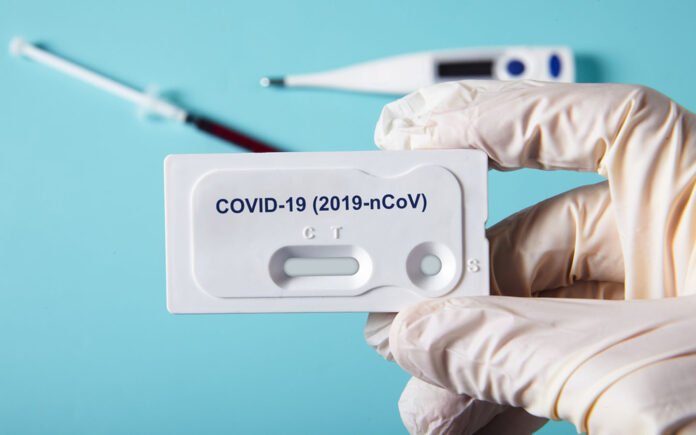Introduction:
If you’ve ever driven from Dubai to Abu Dhabi, chances are you’ve heard of the Ghantoot border checkpoint — that infamous line between two emirates that brought fame during the COVID-19 pandemic. What was once a normal stop became an overnight sensation, a buzzword that became synonymous with PCR tests, EDE scanners, and border control. For many commuters, it wasn’t just a checkpoint; it was an every-day ritual, a small but significant chapter in the pandemic story of the UAE.
Flash forward to 2025, and although the height of the pandemic is gratefully in the rearview mirror, there are still questions surrounding the Ghantoot COVID test. What’s the latest? Do you still need to get tested to enter Abu Dhabi? Are EDE scanners still in use?
The Ghantoot Checkpoint: A Brief History
To follow the topic, let’s take a quick return.
Early 2020: While COVID-19 engulfed the world, the UAE responded quickly. Abu Dhabi, being cautious and measured in its approach, established checkpoints to contain the spread.
Mid-2020: The Ghantoot border between Abu Dhabi and Dubai was a prime screening location. PCR tests 48 or 72 hours in advance became required for entry.
2021–2022: EDE scanners — pain-free machines capable of identifying potential COVID cases within seconds — were placed at Ghantoot. Passengers were stopped if identified as high-risk and underwent rapid antigen or PCR testing on the spot.
2023: With increasing vaccination levels and decreased case counts, limits were phased out. But Ghantoot stayed representative of public health wariness.
Ghantoot COVID Test in 2025: Do You Still Need It?
Here’s the good news: as of 2025, there is no more mandatory COVID-19 test to pass through the Ghantoot checkpoint.
There are, however, a few caveats to mention:
When You Don’t Need a Test:
- Traveling between Abu Dhabi and Dubai for school, work, or personal purposes.
- If you are fully injected and show no manifestation .
- When there are no explosions or special orders in place.
When Testing May Still Be Needed
- During outbreak surges: Authorities may reinstate checkpoints temporarily.
- For Grand events in Abu Dhabi with global attendance.
- If you’re flagged by the EDE scanner as possibly infected (yes, the devices are still around in limited use!).
Pure Health Ghantoot Screening Facility
What Is the EDE Scanner, Exactly?
Let’s break it down.
The EDE scanner is a UAE-developed, contactless COVID-19 screening device that scans for possible viral particles by reading electromagnetic waves radiated by the body. Sounds like science fiction? It sort of is.
Non-invasive: No swabbing or sample taking.
Speedy: Results are out in seconds.
Accuracy: Studies revealed an efficacy rate of more than 90% during peak usage.
Privacy-conscious: No personal data is retained.
Even in 2025, certain public structures, particularly in Abu Dhabi, might employ EDE scanners as a precautionary step especially during busy seasons.
Where to Get COVID Testing Near Ghantoot (If You Still Require It)
Suppose you get detected by an EDE scanner or require testing for work or travel. You have some easily accessible choices near the checkpoint:
Best Testing Centers Near Ghantoot
1.Tamouh COVID-19 Screening Center – Seih Shoaib
- Most proximate to the Ghantoot border.
- Provides PCR tests, antigen tests, and drive-thru facilities.
- Results: PCR within 12-24 hours, rapid antigen within 30 minutes.
- Much sought after by commuters.
- Attached to Al Hosn app for convenient record-keeping.
- Prices begin from AED 40 for antigen tests.
Life Medical Center – Dubai side
- Around 15 minutes from Ghantoot.
- Best for those traveling towards Abu Dhabi and prefer to be pre-cleared.
Real-World Stories: Commuter Chronicles
Ahmed, a school teacher who lives in Dubai but works in Abu Dhabi, writes:
“Back in 2021, I would have to get a PCR test every two days. It was something that became life — coffee, test, then school. The Ghantoot checkpoint was a bottleneck, but it also felt like a bubble of protection. Now it’s smooth sailing, but I still have my vaccine and Al Hosn records, just in case.”
Lina, a nurse, contributes:
I was previously flagged by the EDE scanner in Ghantoot despite having no symptoms. I had a rapid test done onsite, and fortunately, it turned out to be negative. But I honored the system — it made me feel protected.”
Ghantoot COVID Testing Approach Pros and Cons
Pros:
- Safety first: Effectively contained the virus in Abu Dhabi.
- Quick detection: EDE scanners were a lifesaver.
- Innovation-driven: The UAE spearheaded tech-led solutions.
Cons
- Inconvenience: Particularly for regular commuters.
- False positives: People were unnecessarily flagged by some scanners.
- Cost burden: People ended up spending a lot of money frequently testing.
Practical Traveler’s Tips for 2025
If you’re going from Dubai to Abu Dhabi — be it a regular or infrequent trip — here’s what you should remember:
- Always have Al Hosn app updated: Although less rigorously checked, it remains your digital health pass.
- Have a recent test record if attending big events: Organizers may request it, even if border officials don’t.
- Be prepared for random checks during peak times: Like national holidays, festivals, or flu surges.
Government Updates and Expert Opinions
Dr. Farida Al Hosani, spokesperson for the UAE Health Sector, stated in a recent 2025 interview:
Though the need for testing has eased up, our surveillance networks continue to operate. EDE technology and data consolidation through Al Hosn continues to operate silently but effectively in early detection.”
Since 2020, according to the UAE Ministry of Health and Prevention (MOHAP), more than 300 million tests have been carried out with the country having one of the highest per capita testing rates in the world.
What the Future Holds
The Ghantoot border crossing is a testament to how adaptable and proactive the UAE has been throughout the COVID period. In 2025, the border crossing is symbolic rather than operational but it is still a symbol of resilience, safety, and ingenuity.
In the future, the Ghantoot COVID test may fall out of use. But its impact will continue in the way that health systems react to future emergencies, combining technology, accountability, and inter-community cooperation.
1. “From Checkpoints to Check-ins: How Ghantoot Became a Model for Public Health Screening”
- Tone: Story-driven article documenting Ghantoot’s evolution from a border checkpoint to a gold standard for intelligent health surveillance.
- Ghantoot’s contribution to pandemic handling.
- How EDE scanners and artificial intelligence-based health screening established new international standards.
- What other nations can learn from the UAE model.
2. “What’s Left of COVID Travel Restrictions in the UAE? A 2025 Traveler’s Guide”
- Angle: Expand beyond Ghantoot to provide an overall update on inter-emirate travel, airport procedures, and international entry.
- Border procedures currently in place between Abu Dhabi, Dubai, Sharjah.
- COVID testing requirements for international passengers.
- The current state of the Al Hosn app and how it is used.
3. “Inside the EDE Scanner: UAE’s Contactless COVID Detector Explained”
- Angle: An in-depth look at the EDE scanning technology that has become legendary at Ghantoot and other checkpoints.
- How it works (in plain English).
- Research and accuracy facts.
- Public opinion: privacy vs. safety.
4. “Life After PCR: How the Ghantoot Testing Site Pivoted to a Health Tech Hub”
- Tone: Look at how testing facilities at Ghantoot and other such locations have changed.
- Are they still up?
- New services: flu tests, general health checkup, AI diagnosis.
- Interviews with doctors and commuters.
5. “COVID Test Prices in the UAE in 2025: Where to Go and What to Expect”
- Angle: A service-oriented blog with a focus on test convenience and price for travelers and residents.
- New list of cheap centers close to Ghantoot.
- Analysis of types of tests and which is ideal for what scenario.
- Insurance and employer reimbursement advice.
6. “Commuter Diaries: Stories from the Ghantoot Checkpoint”
- Angle: A human-interest blog post with brief vignettes from actual people who experienced the pandemic-testing period.
- Teachers, healthcare workers, delivery drivers, and office workers share their habits.
- Humor, frustration, and resilience embedded in the fabric of everyday life.
- Before-and-after contrast of their experience on commuting.
7. “Ghantoot’s Role in UAE’s Pandemic Playbook: A Strategic Perspective”
- Angle: Examine the role of Ghantoot in the UAE’s larger pandemic playbook from a public policy or health system perspective.
- What went well and why.
- What could have been improved.
- How this will shape future response systems.
Would you like me to write one of these articles in full next? Or maybe combine two of them into a long-form post with more visual storytelling and human elements?
Key Takeaway:
Stay updated, have your health apps at the ready, and be aware of your test options — because even though the Ghantoot test may no longer be a part of everyday life, it is still relevant in pending times.
Conclusion: Ghantoot – More Than a Checkpoint
The Ghantoot COVID test is no longer a daily requirement for tourists in 2025, but it leaves behind a legacy that continues to resonate through the UAE’s health, safety, and smart governance. What was once a logistical inconvenience between two emirates turned into a beacon of resilience, innovation, and public responsibility during one of the most trying global crises of the modern era.
Today, Ghantoot stands as a reminder of how far we’ve come — from swabs and scanners to seamless, safe movement backed by data and preparedness. And while testing requirements have eased, the infrastructure, awareness, and vigilance developed during that time are still very much alive.
Whether you’re commuting, attending a large event, or simply staying informed, understanding the evolution of the Ghantoot COVID test is not just about health protocols — it’s about appreciating a moment in history where collective effort turned a crisis into an opportunity for smarter public health.
Stay safe, stay updated, and if you’re ever passing through Ghantoot, give a nod to the checkpoint that once watched over millions.









